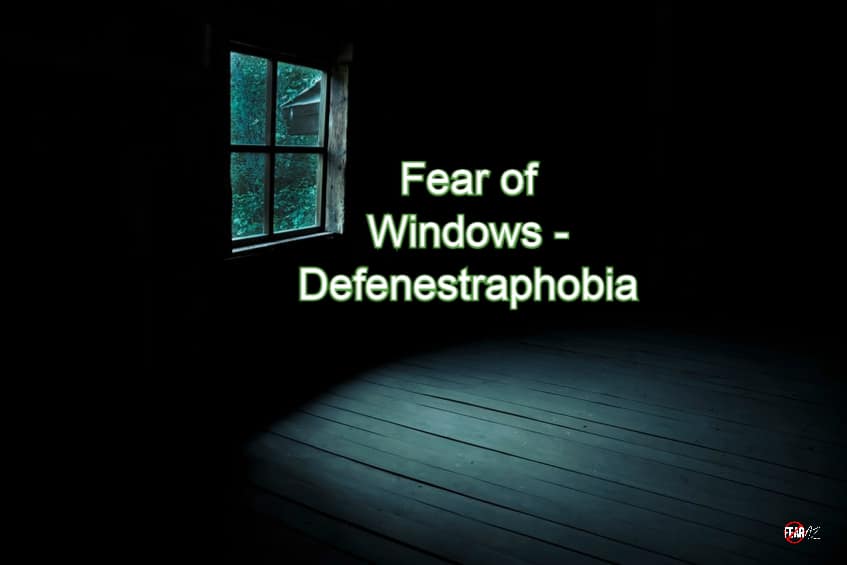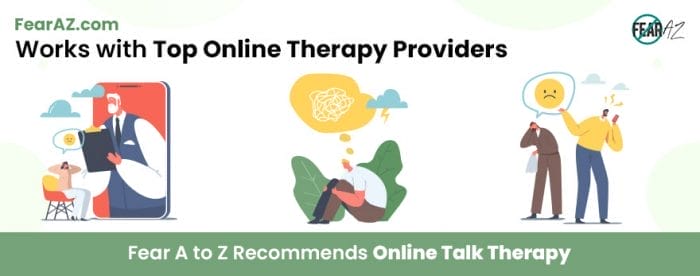Share This Article
Let’s Look into Defenestraphobia or the Fear of Windows
Do you ever fear that someone is looking at you through your windows?
Do you wake up suddenly from your sleep with a feeling that someone is peeking through your windows?
Did the Netflix movie The Woman in the Window make you feel uncomfortable, and was it, at the same time, relatable?
If you’re familiar with any of these scenarios, you may have defenestraphobia.
So, does having this phobia of windows mean you’ll never be able to lead a normal life? No. You can alleviate the symptoms of the phobia with self-help and other forms of treatment.
To overcome this fear, you must first understand when you developed it and what caused it. Next, you can focus on symptoms and treatment to better cope with the phobia.

What Is Fear of Windows?
Fear of windows is just like any other fear. The fear is often related to a fear of being watched through a window. However, you have probably never caught someone in the act of staring at you through the window. The fear often stems from the imagination.
People with this fear may avoid going to places with windows, going near a window, or even thinking about a window.
Sleeping near a window can cause anxiety in those who have defenestraphobia. These individuals may arouse several times at night to ensure the windows are closed. This fear is not as common as others, but if you have it, you should remember that you certainly are not alone.
Defenestraphobia Causes
There is no specific cause for this phobia, as various factors can contribute to the development.
Past trauma or incidents could have caused the phobia. Any specific traumatic incident can leave a long-lasting effect on a person’s mind. A one-time negative incident that involved windows could have left a scar on your mind. Maybe someone got arrested peeking through your neighbor’s window and hearing their story gave you chills.
Learned response or environmental factors are another possible cause. In this case, you may have grown up around someone who had this fear—a family member or a close friend. Constantly watching them panic at the sight of windows might have instilled fear in you over time.
Finally, you may have acquired the genetic tendency toward this fear from your parents or even their parents.
A combination of nature and nurture can cause you to develop a phobia.
Symptoms of Defenestraphobia
Earlier diagnosis of phobia can make coping easier for a person. However, as some phobias can limit a person’s daily activities, you should not take them lightly.
There are no specific symptoms for different kinds of phobias, but knowing some common phobia symptoms can be beneficial.
Physical Symptoms
- Nausea
- Difficulty breathing
- Choking sensation
- Tightness in chest
- Trembling or shaking
- Hyperventilating
- Dizziness or lightheadedness
- Sweating
- Chills
- Stomach pain
- A rise in blood pressure
Psychological Symptoms
- Fear of dying
- Feeling sad and hopeless
- Fear of windows at night
- Feeling like losing control
- Anger and irritability
- Fear of harm
- Feeling powerless
- Panic attacks
- Anxiety
- Withdrawal
You may find one or more of these symptoms if you have this phobia. The symptoms depend on the severity of your phobia.
Some Ways to Deal with Defenestraphobia?
Once you’ve confirmed that you have this fear of windows, you can start with the treatment. Before seeking professional help, you could try self-help techniques proven effective for people with phobias. In the case of specific or simple phobias, all the phobias have standard treatment options.
Self-Help Techniques
The person who can best understand your feelings is you. As you will know exactly how you feel and why, you may be able to tackle your phobia suitably. Self-help techniques to overcome phobias have proven effective for many years.
Lifestyle Changes
You can make lifestyle changes to keep yourself from thinking about your phobia. Incorporating regular exercise, a nutritious diet, increased social activities like visiting family and friends regularly, and keeping busy with work could help keep you otherwise occupied.
Mindfulness Strategies
Mindfulness is a type of meditation where you focus on your feelings at a given moment. It involves breathing techniques, guided imagery, and other techniques to help relieve stress and aid relaxation.
Clinical trials have proven mindfulness effective for various conditions like anxiety, pain, insomnia, and stress.
Join a Support Group
Sharing your feelings can be the most effective way to release pent-up emotions. Talking can help you sort out your thoughts. However, it can get a bit difficult to share your feelings with your friends and family. Joining a group of people with the same phobia can help in this case. You can share ideas and discuss common concerns with others without fear of being judged.
Yoga
Most would be surprised at the effectiveness of yoga or meditation. During times of stress, many people find yoga beneficial. As you breathe deeply with focused attention, it becomes easier to eliminate negative emotions and helps you overcome the fear.
When to Seek Professional Help
Living with a phobia can get challenging, especially when your phobia is a part of everyday life. After all, windows are everywhere!
Because defenestraphobia is a part of everyday life, you cannot ignore or avoid it. It can limit your life in many ways and cause anxiety and depression, so it’s vital to seek help early.
Consult your doctor if:
- If your panic attack frequency has increased
- You can no longer lead a normal life
- You try to stay as far away from windows as possible
- This fear has been bothering you for more than six months
How can treatment help you?
- Treatment will help you better understand your feelings
- You can resolve complex emotions
- You can better organize your thoughts
- You will have a place where you can talk without judgment
- It will enable you to take control of your feelings and body
Professional Treatment
Cognitive Behavioral Therapy (CBT)
Cognitive behavioral therapy helps people eliminate destructive feelings and thoughts that can negatively impact them in the long run.
During cognitive behavioral therapy, your therapist will help you identify irrational thought patterns and replace them with realistic ones.
Hypnotherapy
Hypnosis can serve as a supportive treatment to aid in treating your phobia. During hypnotherapy, the therapist will put you into a receptive and relaxed, trance-like state and offer suggestions to help you change your perceptions. It can help with overcoming fears and related irrational or unhealthy behavior.
Exposure Therapy
During exposure therapy, the therapist gradually exposes you to the source of your fear. Repeatedly encountering the source of your fear in a safe and controlled environment can help reduce anxiety and avoidance.
Help to Get Rid of Defenestraphobia
No treatment can entirely heal or eliminate your fears in a short time.
There is no single treatment that can guarantee a cure. You may need a combination of treatments like counseling, cognitive behavioral therapy, hypnosis, and self-help techniques to overcome the fear.
All types of treatment will benefit you over time, as long as you stay consistent with your therapy or self-help practices.
Wrap-Up
Although overcoming this phobia can be tough, it’s not impossible. The first thing you need to do is acknowledge your fear. With the right treatment and support, you’ll stop running from your fear and start facing it. Getting help and support from your family members and friends will make coping with defenestraphobia much easier.




